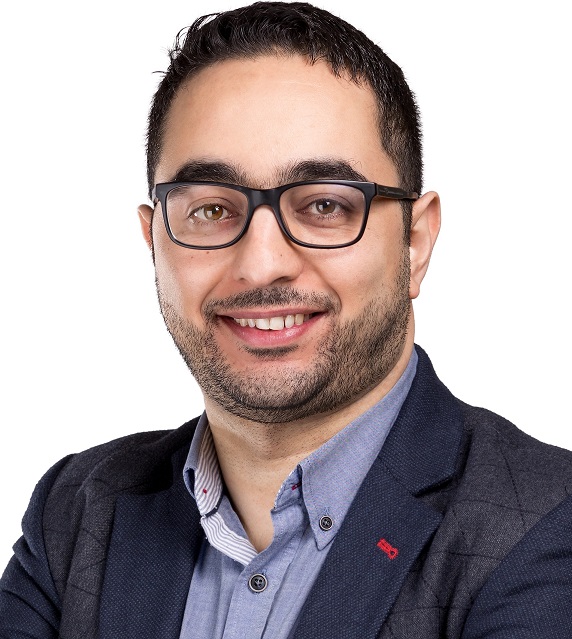Workshop Program
Confirmed keynotes
- Intelligent & Secure Resource Orchestration for Next Generation Integrated Communications and Computing Systems (Prof. Dr. Eirini Eleni Tsiropoulou)
- FlexNGIA – The Edge-Cloud continuum for Future Tactile Internet (Prof. Dr. Mohamed Faten Zhani)
 Bio: Eirini Eleni Tsiropoulou is currently an Assistant Professor at the Department of Electrical and Computer Engineering, University of New Mexico. She received her Diploma in ECE, MBA in techno-economics, and PhD in ECE from the National Technical University of Athens (NTUA) in 2008, 2010, and 2014, respectively. Her main research interests lie in the area of cyber-physical social systems and wireless heterogeneous networks, with emphasis on network modeling and optimization, resource orchestration in interdependent systems, reinforcement learning, game theory, network economics, and Internet of Things. Five of her papers received the Best Paper Award at IEEE WCNC in 2012, ADHOCNETS in 2015, IEEE/IFIP WMNC 2019, INFOCOM 2019 by the IEEE ComSoc Technical Committee on Communications Systems Integration and Modeling, and IEEE/ACM BRAINS 2020. She was selected by the IEEE Communication Society - N2Women - as one of the top ten Rising Stars of 2017 in the communications and networking field. She received the NSF CRII Award in 2019 and the Early Career Award by the IEEE Communications Society Internet Technical Committee in 2019.
Bio: Eirini Eleni Tsiropoulou is currently an Assistant Professor at the Department of Electrical and Computer Engineering, University of New Mexico. She received her Diploma in ECE, MBA in techno-economics, and PhD in ECE from the National Technical University of Athens (NTUA) in 2008, 2010, and 2014, respectively. Her main research interests lie in the area of cyber-physical social systems and wireless heterogeneous networks, with emphasis on network modeling and optimization, resource orchestration in interdependent systems, reinforcement learning, game theory, network economics, and Internet of Things. Five of her papers received the Best Paper Award at IEEE WCNC in 2012, ADHOCNETS in 2015, IEEE/IFIP WMNC 2019, INFOCOM 2019 by the IEEE ComSoc Technical Committee on Communications Systems Integration and Modeling, and IEEE/ACM BRAINS 2020. She was selected by the IEEE Communication Society - N2Women - as one of the top ten Rising Stars of 2017 in the communications and networking field. She received the NSF CRII Award in 2019 and the Early Career Award by the IEEE Communications Society Internet Technical Committee in 2019.
Abstract: To efficiently deal with the stringent requirements of emerging diverse applications, such as time-, bandwidth-, and connectivity-critical, or combinations thereof, the underlying Communications and Computing (CC) systems are expected to be characterized by flexibility, adaptability, and heterogeneity. In this talk, we offer and discuss the appropriate science and technology to conceptualize, model, and design for the realistic deep interdependencies among behaviors, interactions, and decisions, within the era of resource management in the engineered integrated communications and computing systems, and natural world. In particular, we aim to lay the foundations of a novel economic-driven holistic resource orchestration framework for next generation multi-tier integrated communication and computing systems, capitalizing on the principles of context-awareness and learning-based modeling. In this setting, an important and yet unresolved challenge is how and under what conditions, the involved actors can jointly conclude to an operation point where they all enjoy satisfactory performance. In this talk, we will address this fundamental challenge based on three pillars. Firstly, labor economics-based principles will be investigated to capture the relationships among the actors involved in such interdependent systems, while properly driving their behavior and actions to mutual beneficial operation points. Secondly, context-aware decision-making models will be presented, by adopting a human-centric approach, encompassing the principles of satisfaction instead of blind maximization, while benefiting from learning-based methodologies to cope with partial information availability scenarios. Thirdly, the innovative treatment of those two theoretic foundations, will drive the introduction of unified, integrated, modularized end-to-end resource orchestration models in integrated communication and computing systems. Numerical results under a diverse set of scenarios are presented to demonstrate that the introduced paradigm, does not only address the resource orchestration problem in multi-tier settings, but it provides a holistic approach of treating several realistic considerations, including the complete and incomplete information availability, discrete and continuous actors’ strategy spaces, as well as the resource stochasticity, fragility, and the impact thereof.
 Bio: Mohamed Faten Zhani is an associate professor with the department of software and IT engineering at l’École de Technologie Supérieure (ÉTS Montreal) in Canada. His research interests include future Internet architectures, cloud computing, network function virtualization, software-defined networking and resource management in large-scale distributed systems. Faten has co authored several book chapters and research papers published in renowned conferences and journals including IEEE/IFIP/ACM CNSM, IEEE/IFIP IM/NOMS, IEEE INFOCOM, IEEE transactions on cloud computing and IEEE Journal on Selected Areas in Communications (JSAC). He delivered more than ten keynote speeches in renowned conferences and workshops in the last couple of years. He also served as the general or technical program chair of several international workshops and conferences. He served also as co-editor of the IEEE Communications Magazine series on network softwarization and management, associate editor of the IEEE Transactions of Network and Service Management, Wiley international journal of network management, and managing editor of the IEEE softwarization newsletter. He is co founder and vice-chair of the IEEE Network Intelligence Emerging Technology Initiative and a cluster lead at the IEEE P1916.1 SDN/NFV Performance standard group. Faten recently received the IEEE/IFIP IM 2017 Young Researchers and Professionals Award as a recognition for outstanding research contribution and leadership in the field of network and service management.
Bio: Mohamed Faten Zhani is an associate professor with the department of software and IT engineering at l’École de Technologie Supérieure (ÉTS Montreal) in Canada. His research interests include future Internet architectures, cloud computing, network function virtualization, software-defined networking and resource management in large-scale distributed systems. Faten has co authored several book chapters and research papers published in renowned conferences and journals including IEEE/IFIP/ACM CNSM, IEEE/IFIP IM/NOMS, IEEE INFOCOM, IEEE transactions on cloud computing and IEEE Journal on Selected Areas in Communications (JSAC). He delivered more than ten keynote speeches in renowned conferences and workshops in the last couple of years. He also served as the general or technical program chair of several international workshops and conferences. He served also as co-editor of the IEEE Communications Magazine series on network softwarization and management, associate editor of the IEEE Transactions of Network and Service Management, Wiley international journal of network management, and managing editor of the IEEE softwarization newsletter. He is co founder and vice-chair of the IEEE Network Intelligence Emerging Technology Initiative and a cluster lead at the IEEE P1916.1 SDN/NFV Performance standard group. Faten recently received the IEEE/IFIP IM 2017 Young Researchers and Professionals Award as a recognition for outstanding research contribution and leadership in the field of network and service management.
Abstract: From virtual reality and teleportation, to telepresence, augmented reality, holograms, and remotely controlled robotics, these future network applications promise an unprecedented development for society, economics and culture. Unfortunately, today’s Internet falls short when it comes to providing the stringent performance requirements imposed by such applications. This is due to several fundamental limitations in the design of the current network architecture and communication protocols. As a result, there is a pressing need to rethink the network architecture and protocols, and efficiently harness recent technologies in terms control and data plane, in-network computing, cloud computing, virtualization and softwarization to devise the next-generation tactile Internet. In this talk, we start by analyzing the characteristics and requirements of future networking applications and highlight today’s Internet limitations. We then draw a rough sketch of FlexNGIA (www.FlexNGIA.net), a Flexible Next-Generation Internet Architecture that leverages in-network computing, network softwarization and virtualization to satisfy the requirements of future Internet applications and services. We also discuss through some use-cases how FlexNGIA could ensure the service level guarantees required by some of the future network applications. .
SONATAI Program
All sessions are scheduled in the following time zone: Eastern Standard Time (EST).